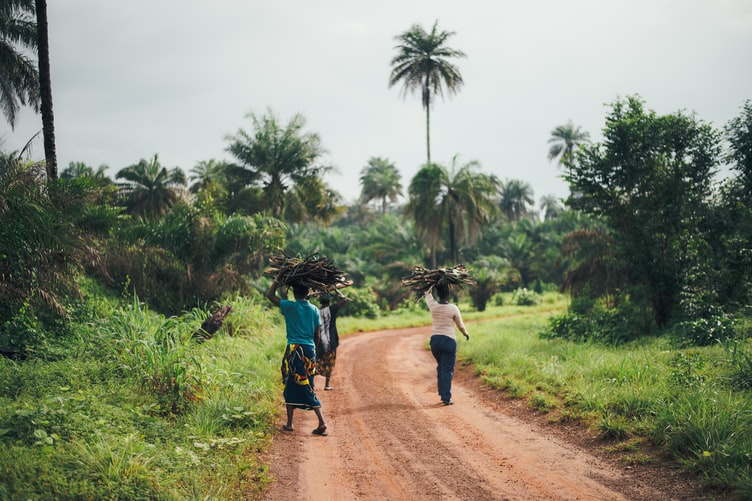Press Release: No Cause For Celebration this Women’s Month – Advocacy Groups Outraged

No Cause For Celebration this Women’s Month - Advocacy Groups Outraged
Press Release
For Immediate Release
06 August 2021
No Cause For Celebration this Women’s Month - Advocacy Groups Outraged
South Africa - We cannot celebrate this Women’s Month when South African women are suffering. The spiralling status of women in the country has prompted its leading nonprofit organisations to put out a collective statement hoping to steer attention to the growing toils society’s most vulnerable group faces. The impact of poverty, the Covid-19 pandemic and climate change has served South African women a continuous stream of blows to their dignity.
Studies in Poverty and Inequality Institute (SPII) Director Isobel Frye said: "It is tragic that our government continues to prevaricate while millions of South African women, especially Black African women, miss meals for days, frequently shielding the hunger of children and older people. The right to dignity enshrined in our constitution cannot be reserved for just a few - and can only be achieved once we ensure a decent standard of living for all.
"Now more than ever, our government needs to adopt a decent basic income grant to end this silent suffering among society's vulnerable. We cannot celebrate women but continue to leave women disempowered or only seen as caregivers rather than holders of rights in their own person; especially when they are expected to carry the nation, as they always have."
United Nations Population Fund (UNFPA) South Africa Youth Specialist Precious Magogodi said: “Covid-19 and lockdown has placed further strain on an already ailing healthcare system. With facilities at capacity, it has made it harder for adolescent girls and women to access, among other things, sexual reproductive health services. And, with increased poverty rates and instances of gender-based violence, women in South Africa are forced into further vulnerability when it comes to HIV.”
Greenpeace Africa Climate and Energy Campaigner Thandile Chinyavanhu said: “Women disproportionately experience the impacts of climate change. Historical discrimination has left women without access to resources such as land, which makes us more vulnerable to the consequences of climate change. Women make up a bulk of South Africa's agricultural workforce through commercial farming and subsistence farming. Climate shocks such as droughts, floods and locust swarms directly impact these women’s capability to provide for their families. With every passing year, they recognise their crops yield less than before. Climate change is affecting their food security drastically. In fact, South African women are starving to shield their families from hunger.
“These women recognise the impact changes in the environment are having on them and are positioning themselves at the frontline of environmental activism. Unfortunately, the space for activism is shrinking and women human rights defenders often receive the brunt of this burden. This is demonstrated by the brutal killing of Environmental Human Rights Defender Mam’ Fikile Ntshangase and continued threats of physical and psychological abuse against activists such as Nonhle Mbuthuma. Women stand at the helm to defend their communities and deserve the government's protection.”
People Opposing Women Abuse (POWA) Counselling Services Manager Jeanette Sera said: “South Africa has some of the highest rates of gender-based violence in the world. Currently, a woman is murdered every three hours in our country, and our femicide rate is almost five times higher than the global average. POWA is a feminist, non-profit organisation that was established in 1979. Our vision is a safe and equal society intolerant of all forms of violence against women and girls in all our diversity, where we are treated with respect and dignity and our rights are promoted.”
The Embrace Project Director and Co-Founder Lee-Anne Germanos said: "As we approach Women’s Day 2021, we have no cause to celebrate. It is clear that the promise of new legislative reforms and the President's Emergency Response Action Plan have not positively impacted the rate of gender-based violence and femicide (GBVF) in South Africa. The GBVF Response Fund also appears to have done little in the way of capacitating key institutions, which remain under-resourced and over-burdened. Thus it can reasonably be deduced that there is a lack of political will to truly end this war against South African womxn. It begs the question: why is it that our government cannot combat, with the same vigour, the second pandemic ravaging this country in the way that it has done its first (the COVID-19 pandemic)?"
For media enquiries contact:
Studies in Poverty and Inequality Institute (SPII) media requests, media@spii.org.za, phone: 071 858 7702
Greenpeace Africa Communications Officer Chris Vlavianos, cvlavian@greenpeace.org, phone: 079 883 7036 and Climate and Energy Campaigner Thandile Chinyavanhu, tchinyav@greenpeace.org phone: 082 614 2676
United Nations Population Fund (UNFPA) South Africa Communications Specialist Ziyanda Ngoma, Ngoma@unfpa.org, phone: 072 299 0868
People Opposing Women Abuse (POWA) Communications Manager Thandiwe McCloy, thandiwe@powa.co.za, phone: 011 642 4345/6 or 083 696 6597
The Embrace Project Director Lee-Anne Germanos, leanne.van89@gmail.com
Recent Posts
- Can we afford NOT to have a BIG in South Africa? – Podcast
- Joint Stakeholder Submission on the Right to Adequate Standard of Living in South Africa
- SPII’s Contribution – Submission to UN CESCR
- Political Elites Must Break Ranks to Crush Poverty, Inequality
- Podcast: High Price to Pay for the Rising Cost of Living
- More People Believe They Are Living Under Poverty in South Africa
- Nkululeko Majozi Speaking on Subjective Poverty in South Africa
- Podcast: In The Ring With Eusebius McKaiser – Can we afford a Basic Income Grant?
- Extending the Social Relief of Distress grant is not enough to alleviate plight of poor, says civil society
- Global Basic Income Grant Pilots Since 2000











